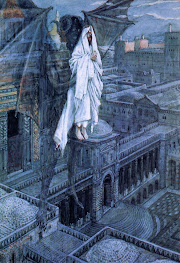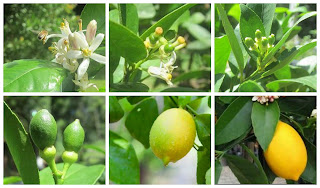First Passiontide
Luke 11:14-36
Jesus was driving out a
demon from a man who was mute. Ravenna
And it came to pass that as the demon left, the
man who had been mute spoke, and the crowd was amazed. However, some of them
said, "He drives out demons by Beelzebub, the prince of demons."
Others sought to test him by asking for a sign from heaven as proof of his
spiritual power.
Jesus knew their thoughts and said to them, "Any kingdom divided against itself will be desolated, and house will fall against house. And you claim that I drive out demons by Beelzebub? Now, if Satan divides [were to divide] his powers within himself, how will [would] his kingdom be able to stand? You have not considered this when you claim that I drive out demons with the power of Beelzebub. If I drive out demons with the power of Beelzebub, with what power do your sons do it? Your sons will be your judges. But since, in fact, I encounter the demons with the authority of God's hand, it follows from this that the Kingdom of God has already come to you.
"When a strong man in full armor guards his palace, his possessions are safe. But when someone stronger attacks and overpowers him, the victor takes away the armor in which the man had trusted and divides it up as spoils.
"Whoever does not unite with my being is against me, and whoever does not gather in inner composure with me [or, work for inner composure with me] scatters.
"When an unclean spirit comes out of a person, it wanders through waterless places seeking a place to rest; and if it cannot find it, it says, 'I will return to the dwelling out of which I have come.' When it returns to this dwelling, it finds it cleaned and adorned. Then it goes and brings seven other spirits more wicked than itself and enters and dwells in that person. And their final state is worse than the first."
1st Passiontide
March 20, 2022
Luke 11:14-35
We all have a home, a space we live in. We may share it with others.
We may also invite guests for a visit. But it would be a strange situation if, at the end of the visit, the guest announced that they were planning to take up permanent residence and refused to leave. For we know that it should be our own choice whom we live with.
Our body is also a kind of home, the home for our spirit. The deaf-mute’s spirit evidently suffered from one of those permanent guests who had decided to make his body its dwelling place. It had even succeeded in binding and gagging him. The Gospel identifies this “guest” as a demon. And Christ describes the nature of such beings: they need a human body in which to dwell; they are able to gain entrance if someone is not strong enough to protect themselves. And even if they succeed in ejecting the demon, it won’t give up; it will return— with reinforcements if necessary.
For demons feed off of what the human being has inside—the precious light of human thoughts, the warmth of human feeling, their strength of will. Christ goes on to proclaim what it is that protects us from being invaded: the wisdom that acknowledges the existence of the Son of Man and the willingness to do the work necessary to invite Him in as a guest, to furnish Him a dwelling place in our inmost heart.
The poet Tom Barrett says:
Pause with us here a while.
Put your ear to the wall of your
heart.
Listen for the whisper of knowing
there.
Love will touch you if you are very
still. …
If you had a temple in the secret
spaces of your heart,
What would you worship there?
What would you bring to sacrifice?
What would be behind the curtain in
the holy of holies?
Go there now.*





















